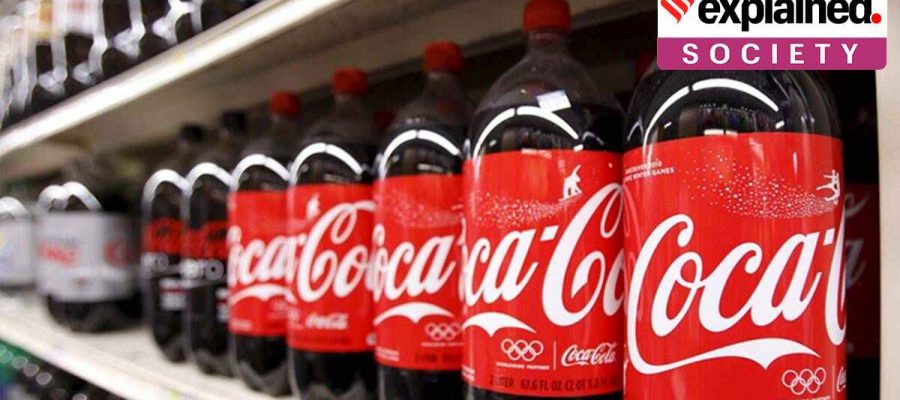The training material was part of a course called “Confronting Racism”, held in association with American academic Robin DiAngelo, the author of ‘White Fragility: Why it’s so hard for white people to talk about racism’.
Beverage giant Coca-Cola has come under fire for allegedly promoting “reverse racism” and “anti-white” rhetoric after a recent diversity training seminar included slides urging employees to “try to be less white”. The content of the controversial training session sparked a storm online after some of the slides were leaked by an employee late last week.
The training material was part of a course called “Confronting Racism”, held in association with American academic Robin DiAngelo, the author of ‘White Fragility: Why it’s so hard for white people to talk about racism’.
A few of the slides in question urged Coca-Cola employees to “be less oppressive”, “less defensive” and “less ignorant” in their dealings. It was allegedly sent to Coca-Cola staff to help build an “inclusive workspace”.
Why did Coke’s diversity training seminar spark such backlash?
After images of the ‘Confronting Racism’ course were shared online last Friday, Coca-Cola has been widely criticised by a number of conservative critics, who accused the beverage manufacturer of ‘reverse racism’ and promoting an ‘anti-white’ sentiment.
The terms ‘reverse racism’ and ‘reverse discrimination’ has been used by conservatives in response to affirmative action and race-based policies since the 1970s. An article in the 1979 California Law Review defines reverse discrimination as a phenomenon where “individual blacks and members of other minority groups began to be given benefits at the expense of whites who, apart from race, would have had a superior claim to enjoy them.”
One of the controversial training slides, which sparked furore across the United States, read, “In the US and other Western nations, white people are socialised to feel that they are inherently superior because they are white.”
Another slide urged employees to “try to be less white” by being “less oppressive”, listening more, believing and breaking “with white solidarity”.
The slides were shared by a YouTube commentator named Karlyn Boryensko, who received the tip from whistleblowers at Coca-Cola. The employees claimed that they were “required” to take the online course, which was then publicly available on the American training website Linkedin Learning. The course was later taken down by LinkedIn.
“The Confronting Racism course featuring Robin DiAngelo is no longer available in our course library, at the request of the 3rd party content provider we licensed this content from,” Nicole Leverich, vice president of corporate communications at LinkedIn, told Newsweek.
Borysenko’s tweets have since been shared over 30,000 times and have garnered nearly 36,000 likes.
What has the response been?
Several Republican lawmakers have since taken to social media to criticise the seminar. Republican Party official and lawyer Harmeet Dhillon shared a tweet, alleging that the course promoted “blatant racial discrimination”.
“It doesn’t get much more racist than this,” Arizona Republican Josh Barnett commented on the post. “If a corporate company sent around a training kit instructing black people how to ‘be less black’, the world would implode and lawsuits would follow,” Conservative commentator Candace Owens tweeted.
How has Coca-Cola responded to the controversy?
Coca-Cola has said that the seminar was not part of its learning programme and was not made mandatory for its employees. “The video and images attributed to a Coca-Cola training program are not part of the company’s learning curriculum,” the beverage manufacturer said in a statement issued on February 21.
The company’s ‘Better Together’ global training programme is part of a learning plan to help build a more inclusive workplace and includes access to the LinkedIn Learning platform, where the presentation was available, Coca-Cola clarified.
“The video in question was accessible on the LinkedIn Learning platform but was not part of the company’s curriculum. We will continue to listen to our employees and refine our learning programs as appropriate,” the statement further read.
Since then, a representative for academic Robin DiAngelo has said she was unaware that her work was being used as part of the presentation. “The online training from LinkedIn Learning that was circulating was not a course by Dr. DiAngelo, but a series of interview clips that had been edited together without her knowledge and presented as an educational resource,” her representative told The Independent.
“She had no involvement in it being presented or marketed as a training session , did not approve its distribution, did not know it was being used in corporate settings, and because of that, it has been removed from the site and discontinued voluntarily by the groups that created and distributed it,” her representative said.
Source: Read Full Article


